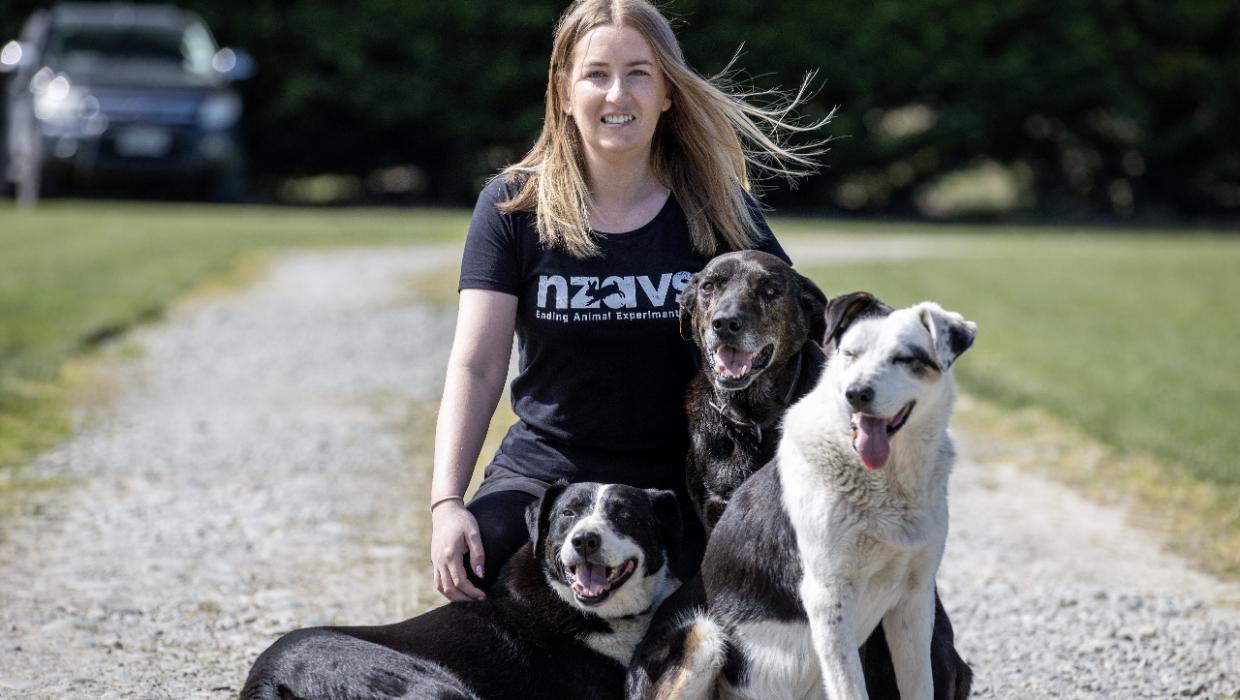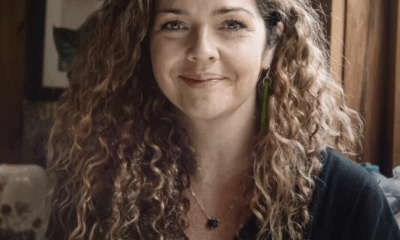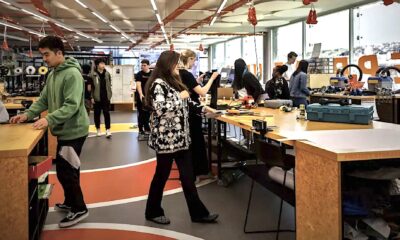Science
Anti-Vivisection Group Funds $50K for Research Alternatives

An initiative by the New Zealand Anti-Vivisection Society (NZAVS) has introduced a $50,000 grant aimed at finding alternatives to animal testing. The funding is designed to support research groups working on methods that could ultimately replace the use of animals in scientific studies. This move comes as part of a broader effort to significantly reduce the number of animals used in research, with a goal of achieving zero harm or death.
Researchers in the field have welcomed this grant, acknowledging their own desire to minimize animal use while emphasizing the enduring importance of animals in scientific discovery. According to Jodi Salinsky, an animal welfare officer at the University of Auckland, “Nobody wants to use animals for research. We do it because we believe that it is necessary to move forward research that is beneficial for humans, the animals, or the environment.”
The NZAVS grant is expected to fund one or two research initiatives focused on developing alternative methods to animal testing. Salinsky views this funding as a constructive step towards collaboration between animal welfare advocates and the research community, stating, “I think this is an extremely positive and proactive way to work with the research community to get what they want – and what we all eventually want.”
Despite the positive impacts of this funding, the current landscape of animal research in Aotearoa reveals significant challenges. Data from the Ministry for Primary Industries indicates that over 316,000 animals were used in research in 2023, only a slight decrease from 324,395 in 2000. Alarmingly, 45,344 animals were killed specifically for their tissues, and 81,443 were euthanized during or after experimentation.
Jade Pengelly, executive officer of NZAVS, expressed concern about the high numbers of animals used in research and highlighted the importance of innovation. “It’s a really high number of animals that are being killed every year in New Zealand in the name of science,” she stated. The hope is that the grant will stimulate new technologies and methodologies, eventually leading to a substantial reduction in animal use.
The preference for grant applications will lean towards proposals that promise long-term impacts, such as those that could lead to curriculum reforms or policies to phase out animal use altogether. Michael Pankhurst, a senior lecturer and researcher at Otago University, believes the grant could facilitate significant advancements. He noted that the funding could enable the development of alternative methods that could be adopted by other researchers in the field.
Pankhurst’s research employs a combination of techniques, including animal studies, cell cultures, computer models, and human studies involving blood samples. While he acknowledges the increasing use of alternative methods, he also points out that technologies such as organoids and organ-on-a-chip are costly, and limited research funding poses a significant barrier.
He explained, “By using a range of technologies, overall, this leads to a lower requirement on animal use, but there are still some things that we cannot do without live animal experimentation.” Pankhurst does not foresee a complete replacement of animal experiments in his lifetime, citing the critical discoveries that depend on such research.
As the application period for the grant is now open and will close in January 2024, the research community is poised to explore innovative avenues that could transform the landscape of scientific inquiry and animal welfare in Aotearoa. This funding initiative reflects a growing recognition of the need to balance scientific advancement with ethical considerations in research practices.
-

 World1 week ago
World1 week agoPrivate Funeral Held for Dean Field and His Three Children
-

 Top Stories2 weeks ago
Top Stories2 weeks agoFuneral Planned for Field Siblings After Tragic House Fire
-

 Sports3 months ago
Sports3 months agoNetball New Zealand Stands Down Dame Noeline Taurua for Series
-

 Entertainment3 months ago
Entertainment3 months agoTributes Pour In for Lachlan Rofe, Reality Star, Dead at 47
-

 Entertainment2 months ago
Entertainment2 months agoNew ‘Maverick’ Chaser Joins Beat the Chasers Season Finale
-

 Sports3 months ago
Sports3 months agoSilver Ferns Legend Laura Langman Criticizes Team’s Attitude
-

 Sports1 month ago
Sports1 month agoEli Katoa Rushed to Hospital After Sideline Incident During Match
-

 World2 weeks ago
World2 weeks agoInvestigation Underway in Tragic Sanson House Fire Involving Family
-

 Politics2 months ago
Politics2 months agoNetball NZ Calls for Respect Amid Dame Taurua’s Standoff
-

 Top Stories2 weeks ago
Top Stories2 weeks agoShock and Grief Follow Tragic Family Deaths in New Zealand
-

 Entertainment3 months ago
Entertainment3 months agoKhloe Kardashian Embraces Innovative Stem Cell Therapy in Mexico
-

 World4 months ago
World4 months agoPolice Arrest Multiple Individuals During Funeral for Zain Taikato-Fox





















